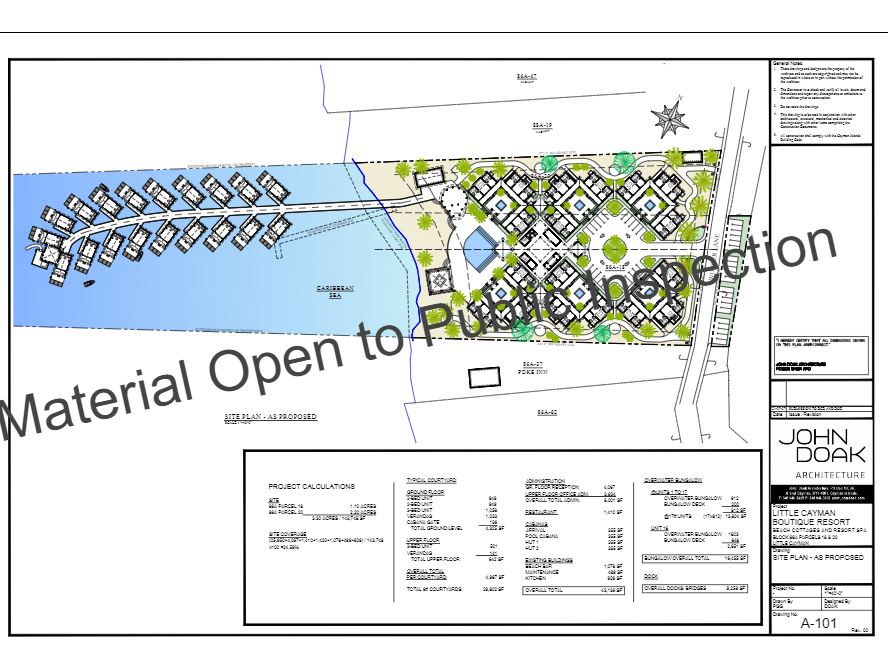NEWS
CCMI Statement on Proposed Development at Kingston Bight

For Immediate Release
CCMI Statement: 12th August 2021
Contact: Kate Holden, [email protected]
Reference: The proposed site Little Cayman Resort Block 86A Parcels 18 & 20 – Overwater Bungalows and Dock at Kingston Bight.
CCMI is a research, education and conservation institution, focusing on sustainable solutions for the coral reef ecosystem in the face of changing climate and decreasing biodiversity. We focus on informing research-based policy at the ecosystem level; therefore, we do not lobby and rarely do we comment on singular development proposals. However, in this instance, we feel the proposed development on Little Cayman has the potential to impact the entire local marine ecosystem. Specifically, there are three main factors that we feel need to be carefully considered:
- The proposed development site is within a no-take ‘marine reserve’ area. Marine reserves are one of the few positive solutions in the fight to protect future marine biodiversity. For South Hole Sound (the area of the proposed development) to be awarded the status of Marine Reserve, the site has been a) surveyed for biodiversity and deemed worthy of additional protections due to ecological significance and b) approved for protection by the Cayman Islands Government via the Marine Reserve process. To ignore this marine protection designation by developing within the coastal/marine zone, directly goes against the intentions of the marine protection laws in the Cayman Islands, as well as creating a troubling precedence.
- The area where the proposed 500+ foot dock and 19 overwater bungalows are to be built is an important feeding ground for bonefish, turtles, rays, and sharks as well as a nursery for juvenile reef fish and sharks. The dredging, drilling, and construction of this dock and its water bungalows will inevitably have an impact on this important ecosystem. If approved, the construction of this site will also potentially have a damaging impact on the entirety of South Hole Sound.
- CCMI has been monitoring Little Cayman’s reefs for over 23 years, and the following points arise from our long-term findings (last published June 2021: https://reefresearch.org/wp-content/uploads/2021/06/HRR-Card-2021-1.pdf ), which particularly pertain to the sensitivity of the coral reef ecosystem that this proposed site is intrinsically linked to:
a) Little Cayman’s coral reefs show positive traits of resiliency over the last 23 years, with continued high coral and fish abundances. However, natural and human-caused impacts to the marine environment have resulted in a shift in composition of the coral community, from reefs dominated by massive boulder corals, such as Orbicella spp., to smaller corals such as Agaricia spp. and Porites spp. This shift has led to a decrease in the average size of individual corals, thereby reducing the structural complexity and integrity of the reef, which in turn, will impact the capacity of the reef to provide many of the important services we depend upon them for, such as storm protection. Shifts in species contributions and colony size indicate that while coral cover remains high, Little Cayman is not immune to human impacts and global climate change. There is limited active climate change protection and mitigation policy in the Cayman Islands – so marine reserve protection is arguably the most pro environmental law(s) in place. Simply, the ecosystem is already under stress from a variety of impacts and in order to sustain biodiversity we must promote protection policies and minimize additional sources of pressure.
b) There is a current Stony Coral Tissue Loss Disease prevalent in Grand Cayman. The likelihood is this aggressive disease, which has a 90% mortality rate in the most important (structural) corals, will arrive in Little Cayman, and adding to increased environmental stress via dredging and construction within this marine protected area could be catastrophic.
To that end, the CCMI management team and the CCMI Board, based on the reporting and evidence in the public domain on this project, believe that the ecological damage that will be inflicted on the marine environment in Little Cayman from the overwater bungalow/dock construction goes against the local environmental marine protection policies and is in direct opposition to the biggest threats facing Little Cayman’s marine systems: climate change, pollution, and increased anthropogenic activity. Sustainable development is imperative throughout the Cayman Islands but especially for Little Cayman, where limited development has proven to result in a healthy marine environment, which is in stark contrast to many islands in the Caribbean.
~ Statement ends~
